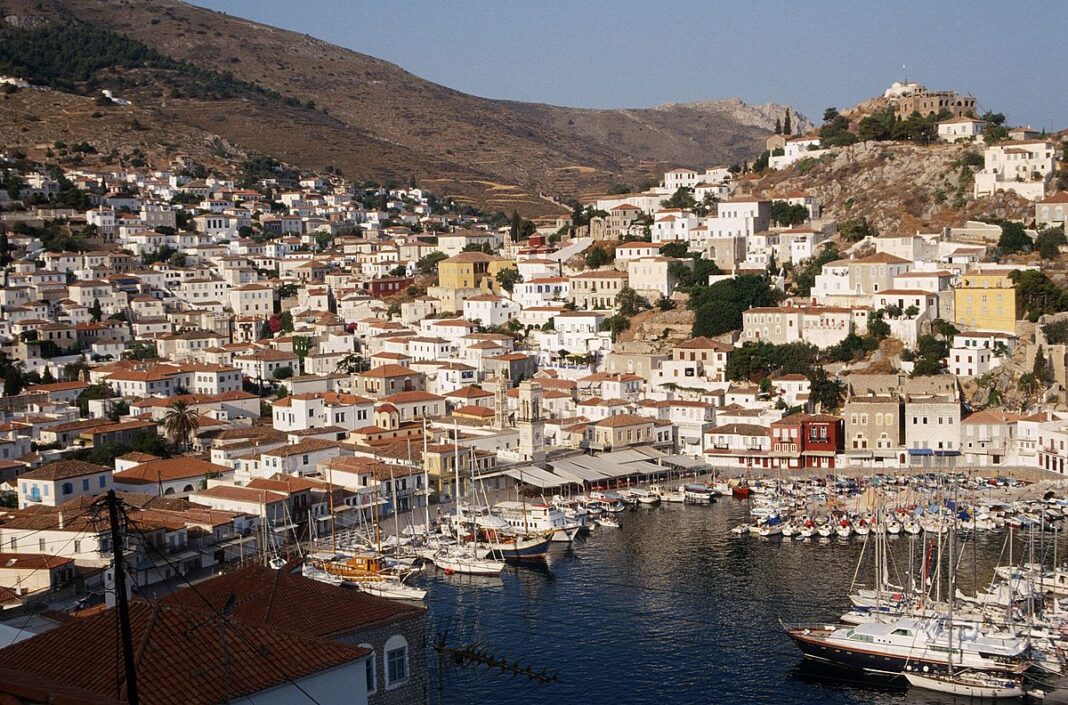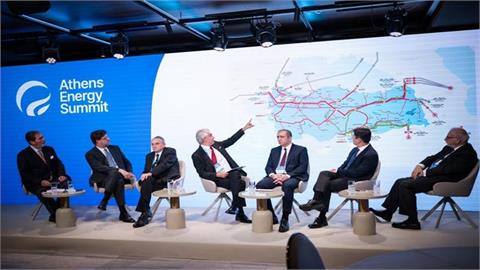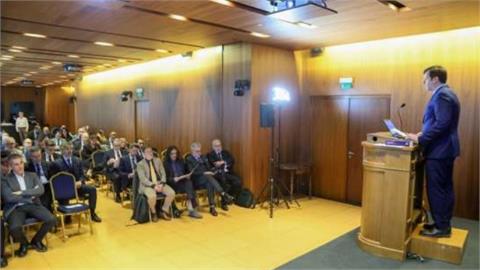Following an invitation by the organisers the Chairman and Executive Director of the Institute, Mr. Costis Stambolis, participated in the 15th Hydra Shipping Conference which took place on September 13/14 on the picturesque island of Hydra
Following an invitation by the organisers the Chairman and Executive Director of the Institute, Mr. Costis Stambolis, participated in the 15th Hydra Shipping Conference which took place on September 13/14 on the picturesque island of Hydra. Convened by the Fraternity of Decedents of Hydra’s historic families and backed by major Greek shipping companies the event has emerged over the past years as an informal forum for shipping policy, forward thinking and relevant action. Participants include representatives from some of Greece’s leading shipping families and companies. The event attracted more than 100 delegates from Greece,UK,Switzerland,USA,UAE and from several other countries.
This year the main theme of the conference (here) was devoted on Artificial Intelligence (AI) and its impact on shipping. Following an invitation by the conference chairman, Mr. George Tsavliris, the Chairman of IENE moderated Panel II which was devoted on energy and geopolitics. In his introductory presentation Costis Stambolis focused on “Energy Commodities and Shipping” (here) As he underlined in his opening remarks, “as energy transition gathers pace, backed with religious zeal by the EU and some other countries, the cardinal question faced by several shipowners and ship operators is whether in few years from now,there will be enough oil,gas and coal to ship around,or should shipowners start making plans to sell their fleets and look towards other business options”.
Following the presentation of a series of so called hard facts, abstracted from the IEA, the OPEC, BP and IENE’s own data base, the conclusion reached by IENE’s chairman was that at least over the next 20 years world oil,gas and coal producers will pump and produce more than enough to keep the market in balance. “Pressure by governments and international organisations to fast track energy transition by imposing arbitrary emission inspired changes on fuel consumed in industries,transportation,buildings and shipping have not been successful in curtailing demand for fossil fuels as latest figures show. On the contrary we see a rise in demand”, concluded Stambolis.




